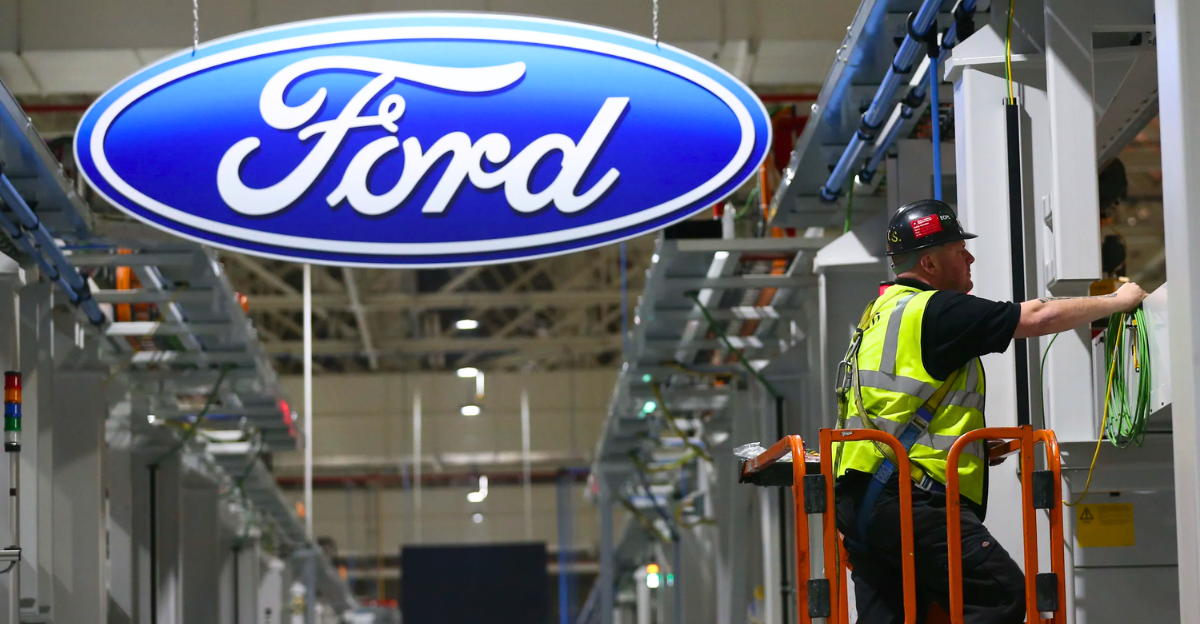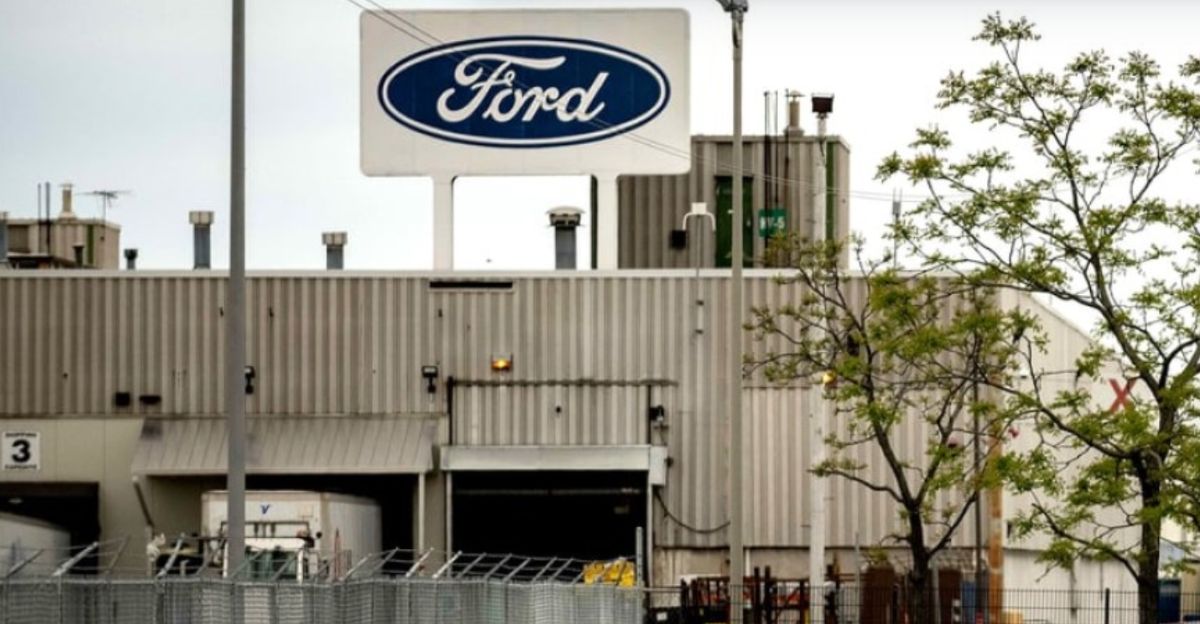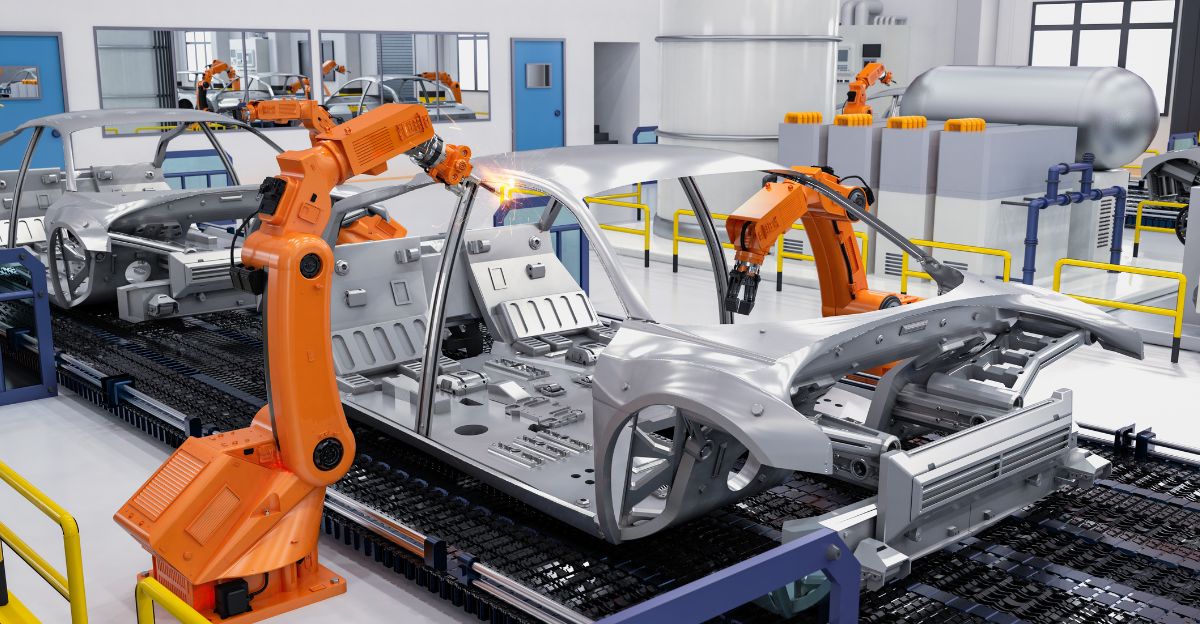
In May 2025, Ford temporarily shut down its Chicago Assembly Plant, halting production of popular models like the Ford Explorer.
The company cited ongoing shortages of critical materials. CEO Jim Farley admitted the automaker was operating “hand to mouth,” with no long-term clarity on supply. The pause highlights the fragility of today’s global manufacturing networks.
America’s Manufacturing Giant Hits a Wall

The Chicago plant is one of Ford’s largest, employing over 4,600 workers. The shutdown wasn’t just a pause in output. It disrupted jobs, families, and nearby suppliers.
For many, the plant is the economic heart of the region. One worker put it plainly: “One day we’re building SUVs. The next, we’re waiting for a call.”
The Rare Earths Bottleneck

Rare earth elements power everything from electric motors to audio systems. These minerals are essential in Ford’s EV transition but supply has dried up.
The materials are difficult to substitute and impossible to produce quickly. A single missing component can freeze an entire production line, and that’s exactly what happened in Chicago.
China Tightens the Tap

China processes over 90 percent of the world’s rare earths. In April 2025, it introduced new export restrictions requiring detailed paperwork many companies saw as invasive.
So far, only about 25 percent of export licenses have been approved. Ford and others have been left in limbo, unable to secure the materials they need.
Trade Tensions Behind the Crackdown

China’s move came in retaliation to new U.S. tariffs on Chinese EVs and auto parts introduced earlier this year.
What started as a tariff battle has turned into a full-blown supply chain crisis. The U.S. automotive industry is caught in the middle. European automakers are also feeling the pressure from limited supplies.
A Global Supply Chain on Edge

Volkswagen, BMW, and Mercedes-Benz have all reported production delays due to rare earth shortages. German supplier Magnosphere described the situation as “full panic.”
Factory shutdowns are now happening in multiple countries, with automakers scrambling to locate alternative sources before their inventories are fully drained.
How Rare Earths Power EVs

Electric vehicles depend on rare-earth magnets to run their motors. Permanent magnet synchronous motors are used in nearly every major EV model and cannot function without them.
These materials are also found in steering systems, braking units, and even door sensors. Without rare earths, modern vehicle production is impossible.
Ford’s Explorer Takes a Hit

The Chicago Assembly Plant primarily manufactures the Ford Explorer, one of the company’s best-selling SUVs. Even a single week of lost output has major financial consequences.
Ford has already delayed delivery timelines and warned of slimmer profit margins. For a company betting big on EVs, it’s a serious setback.
Workers Feel the Blow First

When the plant closed, more than 4,600 workers were furloughed, and 243 employees were laid off at a nearby stamping facility.
Congressman Frank Mrvan said the shutdown was directly linked to rare earth shortages affecting braking systems and EV drivetrains. Workers and their families are now facing a very uncertain summer.
Inventory Running on Fumes

Most automakers only keep about four to six weeks of rare earth inventory. Once that buffer runs out, production must stop.
With no quick fix in sight, temporary plant closures may become more common across the industry. Every day without critical materials can mean millions in lost production and sales.
Ford’s Plan: Diversify or Die

Ford and other manufacturers are urgently seeking alternative rare earth suppliers outside of China. Vietnam, Australia, and the U.S. are all on the list.
But building new mining and processing infrastructure takes years. Ford is also lobbying U.S. lawmakers to help preserve auto jobs that rely on stable material access.
A Pattern of Disruption

Supply chain instability is nothing new. In 2024 alone, the auto industry saw a 37 percent increase in disruptions, including fires, protests, and extreme weather.
Some companies have improved inventory planning and tracking. Still, the overreliance on one supplier nation leaves production systems vulnerable to sudden shocks.
Financial Fallout Begins

Ford’s stock price dropped after the shutdown was announced. Investors worry about long-term consequences and delayed electric vehicle rollouts.
If material shortages continue, more companies could face delivery setbacks and higher costs. Analysts say the impact will be felt not just in boardrooms but also in rising prices at the dealership.
A Diplomatic Window Opens

In late June, U.S. and Chinese officials held talks in London and reached a tentative agreement. China pledged to speed up rare earth export approvals in exchange for reduced U.S. countermeasures.
Commerce Secretary Howard Lutnick confirmed the deal, but details are vague. The auto industry remains cautious but hopeful.
An Industry at a Crossroads

Ford’s manufacturing halt is more than a temporary bump. It’s a signal that global trade, supply security, and local jobs are tightly intertwined.
The future of the American auto industry may depend not just on innovation but on reshaping where and how vital materials are sourced. This is a defining moment.
